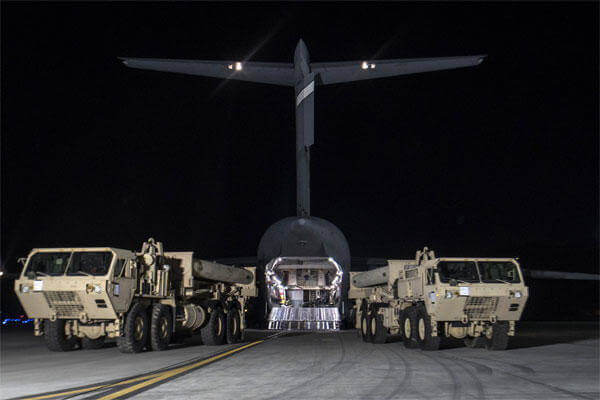President Donald Trump rattled the caretaker government of South Korea on Friday with a demand that Seoul pay the U.S. as much as $1 billion for setting up the THAAD missile defense system to guard against the North Korean threat.
In a Reuters interview, Trump said of THAAD that "It's a billion dollar system. It's phenomenal. It's the most incredible equipment you've ever seen -- shoots missiles right out of the sky."
"And it protects them (the South Koreans) and I want to protect them," Trump said of the Terminal High Altitude Area Defense System. "We're going to protect them. But they should pay for that, and they understand that."
Related Video:
THAAD Deploys to Republic of Korea
"On the THAAD system, it's about a billion dollars," Trump said. He said he told his aides "Why are we paying? Why are we paying a billion dollars? We're protecting. Why are we paying a billion dollars? So I informed South Korea it would be appropriate if they paid."
South Korea did not think it was appropriate that they should pay for a system that guards against a mutual threat to the U.S. and South Korea. South Korea's Defense Ministry said the deal on THAAD with the U.S. military was that the U.S. would deploy and operate the system while South Korea provided the land and infrastructure.
"The official position remains unchanged that our government provides the land and other infrastructure while the U.S. covers the burden of cost of deploying and maintaining the THAAD system according to the regulations of the Status of Forces Agreement (SOFA)," the Ministry said in statement.
The THAAD deployment has become an issue in the election campaign to replace President Park Gyun-hye, who was formally ousted last month after being impeached for corruption by Parliament in December.
The front-runner to succeed Park, Moon Jae-in of the Democratic Party, has said that Park's government was wrong to accept the THAAD deployment.
Adm. Harry Harris, commander of U.S. Pacific Command, told the House Armed Services Committee Wednesday that the THAAD system could be activated "in the coming days," suggesting that the U.S. wanted the system up and running before the May 9 elections in South Korea.
-- Richard Sisk can be reached at Richard.Sisk@Military.com.



























